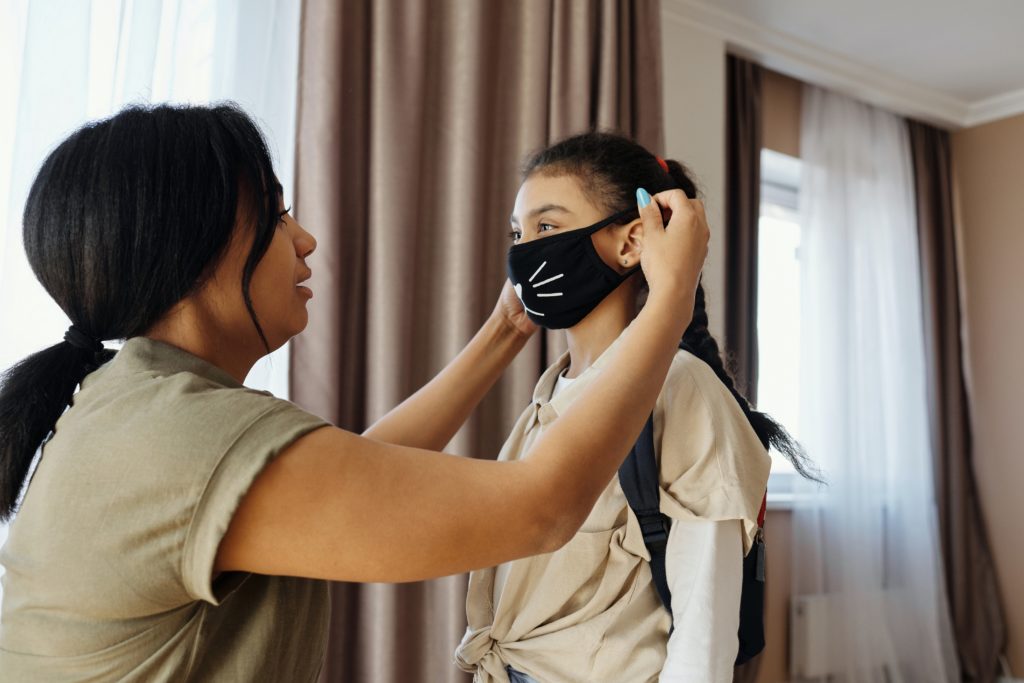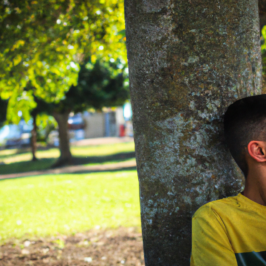
By: The Resource Group Team
The effects of the COVID-19 pandemic can affect children and young people far beyond the physical risk of disease. The mental health impact of the virus is something that is hitting everyone across the globe, but the impact on social, emotional, and mental wellbeing can be particularly severe for younger people who are still developing. Trauma experienced during the developmental stage of a child can continue to affect them throughout their life.
Some of the challenges that young people are facing during the pandemic are:
- Changes in their daily routines (such as having to physically distance from family, friends, worship community)
- Breaks in continuity of learning (such as virtual learning environments, technology access, and connectivity issues)
- Breaks in continuity of health care (such as missed well-child and immunization visits, limited access to mental, speech, and occupational health services)
- Missed significant life events (grief of missing celebrations, vacation plans, and/or milestone life events)
- Lost security and safety (housing and food insecurity, increased exposure to violence and online harms, threat of physical illness and uncertainty for the future)
Because of this, many parents and caregivers are justifiably concerned about the well being of their children. To help with this, we here at The Resource Group have asked our therapists, clinicians, and social workers to develop some tips and tricks to help support those serving children during this pandemic.
Mindfulness
Mindfulness is a mental state that is achieved by focusing your awareness on the present moment and calmly acknowledging your feelings, thoughts, and body. Practicing mindfulness skills can help children and teens cope with everyday stressors. Here are some examples:
Paced Breathing
Deep abdominal breathing encourages full oxygen exchange — that is, the beneficial trade of incoming oxygen for outgoing carbon dioxide. Not surprisingly, it can slow the heartbeat and lower or stabilize blood pressure. A good way to start is to try inhaling to count of 3 and exhaling to count of 5.Concentrate
Researchers theorize that mindfulness meditation promotes metacognitive awareness, decreases rumination via disengagement from perseverative cognitive activities and enhances attentional capacities through gains in working memory. These cognitive gains, in turn, contribute to effective emotion-regulation strategies. Have them close their eyes and focus on sounds they can hear, things they can smell, etc.Mindful Coloring
Researchers investigated the effect of coloring mandalas on relaxation by recording physiological changes. The study found that the coloring of mandala designs decreased heart rate and blood pressure, while simultaneously improving some symptoms of stress and anxiety.
Emotion Regulation
Regulating emotions can help students adapt to ever-changing schedules. One skill, known as “PLEASE” skills, focuses on taking care of the body. The idea behind PLEASE is to take care of one’s basic needs so that one can make healthier decisions and be less vulnerable to emotional disruptions.
PL: Treat Physical Illness
Taking care of physical illness can be as simple as remembering to take your prescribed medications every day. On the other hand, it may require visiting a doctor to discuss symptoms you’ve experienced and getting tests done. While this may sound difficult at first, addressing any underlying physical illnesses that your child may have is likely to pay off for their (and your) mental health as well.E: Balanced Eating
Mental health disorders like anxiety and depression can make it difficult for people to eat healthy meals on a regular basis. As difficult as it may be, eating a balanced diet is an important part of the PLEASE skill. When you give your body the nourishment it needs, you are better able to cope and regulate. Try your best to feed your child a balanced, nutritious diet!A: Avoid Non-Prescribed Mood Altering Drugs
It’s important for anyone living with a mental health disorder to avoid using mind-altering substances unless a doctor prescribes them. These substances include, but are not limited to, alcohol, caffeine, nicotine, medications prescribed to other people, and illegal drugs.S: Balance Sleep
An unhealthy sleep cycle can throw your physical health off-balance. While many people get too little sleep, some people with disorders like depression can get too much sleep. It’s important to find a healthy balance to give your mind the best chance at emotional regulation.Being at home all the time can certainly make it difficult for your child to have a regular sleep schedule. Some basic sleep hygiene recommendations that could help include avoiding screens for at least 30 minutes before bed, going to bed and waking up at the same time every day, getting some exposure to daylight during waking hours, optimizing your bedroom for restful sleep, and limiting naps to 30 minutes.
Try to create a sleep routine for your child that sets them up for success. The process of adjusting sleep should be incremental. For example: have your child wake up 15 minutes earlier and go to sleep 15 minutes earlier and adjust it every few days until they are sleeping and waking at the desired time for school.
Preschoolers (ages 3-5) require 10-13 hours of sleep
School-age children (ages 6-13) require 9-11 hours of sleep
Teenagers (ages 14-17) require 8-10 hours of sleepE: Get Exercise
The mental and physical health benefits of getting regular exercise are backed by decades of research. It can help treat underlying physical illnesses, regulate sleep patterns, and improve emotions. “Enough exercise” is going to be different for every person and you should always consult your healthcare provider before starting a new regimen. One way to implement exercise into your child’s life is to make physical movement a family activity.
Accumulating Positive Emotions
Another emotion regulation skill is Accumulating Positive Emotions. This involves the child generating a list of things that boost their mood. Our clinicians recommend that every person in the family participate in this activity. This way, you can find positive activities that everyone enjoys and do them together as a family.
The uncertainty caused by the pandemic can be scary and difficult to manage, even as adults. It is important to incorporate validation in interactions with your child. It allows for an opportunity to stay connected to your child. Validation incorporates listening to them and empathizing with their feelings. It means letting them share their thoughts and feelings without judging or criticizing them. You let them feel heard and understood. You might consider saying:
- It makes sense that you feel…
- It makes sense that you think…
- I wonder if you…
- What do you need from me right now?
- Your emotions make sense…
By using the above resources and tips, you can help your loved ones cope with the rapidly changing world and help them navigate their own emotions. Now more than ever it is important to maintain communication and deal with emotions head on.
If you or your child is seeking further psychological help such as therapy, addiction, or medication management, you can reach out to us here at the Resource Group for help. Please call 410-337-7772 for more information on the services we provide.
DISCLAIMER
The information, including but not limited to, text, graphics, images and other material contained on this website are for informational purposes only. No material on this site is intended to be a substitute for professional medical advice, diagnosis, or treatment. Always seek the advice of your physician or other qualified healthcare provider with any questions you may have regarding a medical condition or treatment and before undertaking a new health care regimen, and never disregard professional medical advice or delay in seeking it because of something you have read on this website.






